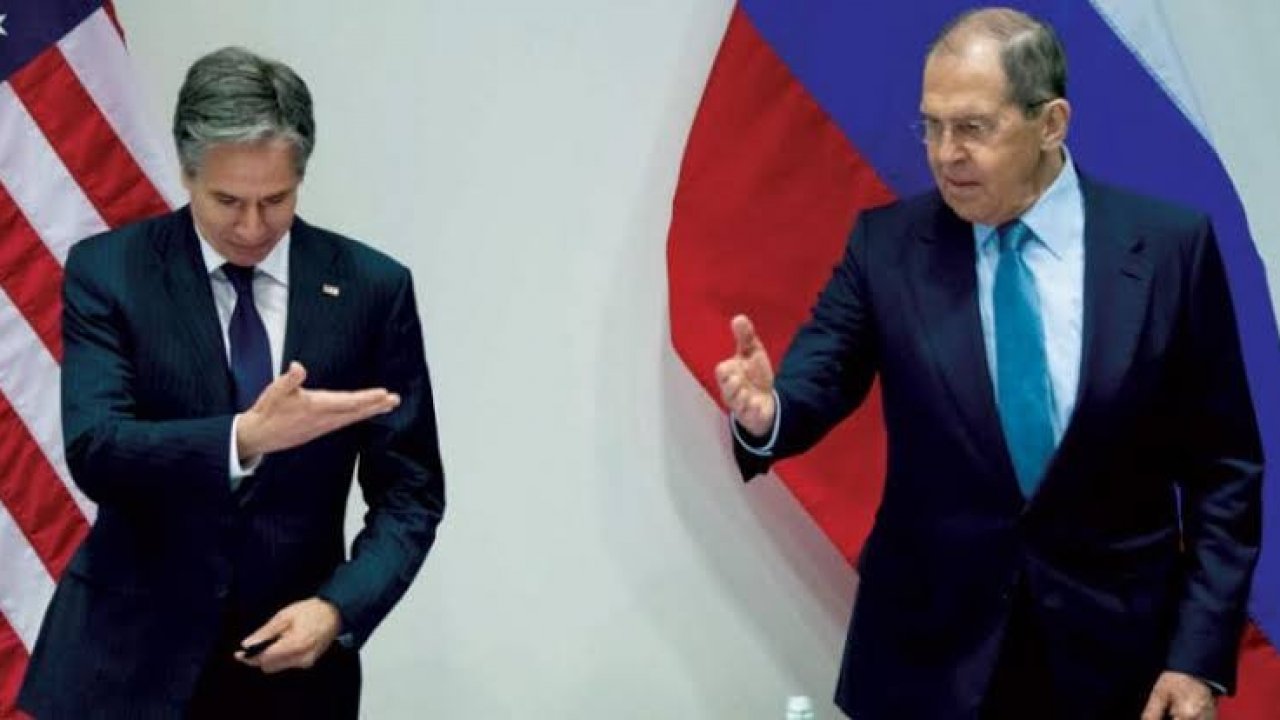Seyed Reza Mirtaher in an interview with the site of Strategic Council on Foreign Relations continued:” the development was the starting point to encourage Russia to make change the situations in Ukraine. In February 2014, Crimea peninsula and Sevastopol were separated from Ukraine through a referendum, in the meantime an internal war started in the East of the country”.
According to the expert, at the moment and despite a ceasefire effected, the East of Ukraine continues to be in an unstable state.
On the new round of tensions between Russia and Ukraine, he said:” the new round of tensions started from January 2021, when in fact, Ukraine accused Russia to have amassed forces and military equipment around the country. The issue provoked reactions of the U.S. and NATO. The West adopted a threatening attitude against Russia in case of staging any attack on Ukraine”.
Having referred that the tension de-escalated after almost 3-4 months, Mirtaher said:” But it was probably about three months ago when the last round of tension started again and various Ukrainian authorities including the president and some military-security officials accused Russia of stationing about 100000 military forces along its Western and Northern borders that is neighbor to Ukraine. In the meantime, Russia was accused to have expedited the process of stationing equipment, particularly strategic bombers as well as different types of defensive and offensive equipment in the Crimea peninsula”.
The expert continued:” therefore, the issue became an excuse for the West and particularly the U.S. to accuse Russia intends to attack Ukraine. In the meantime, remarks expressed and positions taken by some of security, military and political authorities in Kiev sparked the issue”.
The expert of international affairs emphasized:” for example it was said that Russia plans to launch an invasion deep inside Ukraine and even to proceed to Kiev and to dismember parts of Ukraine. But some analysts believed at the same time that Russia’s objective to equip and station its military forces was probably to separate two areas of Ukraine connection with the Crimea peninsula and meanwhile dominate the water resources that flow from Ukraine into Crimea. In other words, to stabilize its dominance over Crimea”.
According to Mirtaher, the issue provoked the political tensions between the U.S. and Russia to rise and even became the pivot of bilateral conversation between the U.S. President Joe Biden and the Russian President Vladimir Putin”.
Having pointed that Biden has threatened Russia that if it takes step to attack Ukraine, Moscow will not only be subjected to the most extensive sanctions but also gives a crucial response to Moscow as well, he emphasized:” on the opposite side, Russians have said it time and again that such rhetoric is considered as a kind of psychological warfare by the West and Russia does not plan to invade Ukraine, but the U.S. and NATO use it as a pretext to expand their presence in East Ukraine and in immediate neighborhood with Russia in order to station their military forces along the Russian borders”.
The expert continued:” another issue that provoked the tension is the effort made by the Americans and the British to harbor and stabilize the notion of Ukraine membership in the North Atlantic Treaty Organization, NATO”.
The expert of international affairs explained about the possibility of Ukraine membership in NATO:” According to NATO statute, there are many different conditions for the membership of a country to be acceded in the military treaty. In view of the outbreak of an internal war, also extensive administrative and financial corruption in the country as well as other issues, it seems unlikely that the country is eligible to have the membership conditions in NATO”.
He continued to deal with the effort made by the U.S. for Ukraine membership in NATO and said:” Amid all this, Americans are strongly willing to realize the issue and one of the existing problems at the moment is Ukraine non-membership in NATO that principally raise the question; in case of the Russian invasion of Ukraine, what is the U.S. and NATO pretext to intervene in this respect?”
In another part of the interview, the expert dealt with the geographical situation of Ukraine and explained:” As the largest European country in the Continent, Ukraine has a special strategic position. It is very important for the Westerners to include Ukraine completely under the West camp and in fact, NATO forces can be stationed at the neighborhood of Russia”.
He mentioned Moscow’s reaction in relation to the West’s demand and said:” Moscow has declared that Ukraine membership in NATO as the red line of the national security of the country and would severely deal with it. Moreover, in 2008 and in the course of the war between Georgia and Russia, one of the Moscow’s objectives was to flex its military muscle to Tbilisi to quit any effort for NATO membership”.
Mirtaher added:” From Russian point of view, the peripheral countries to it should not be a member of NATO, and if this happens the West threats against Russia would be visualized which is completely unacceptable to Kremlin authorities”.
Having referred to the documents that Russia has recently delivered to NATO and the U.S., the expert explained:” According to the documents, Russia had demanded the West to quit the efforts for Ukraine membership in NATO and in the meantime, the U.S. avoid threatening measures such as stationing short- and medium- range missile systems in Europe. Moreover, Europe should take confidence building measures as well. However, NATO, U.S. and EU gave a negative response to the Russian demand.”
Ultimately, Mirtaher said:” that’s why if the present process continues, it is expected that in future we will witness the rising confrontation of Russia with NATO from one hand and with the U.S. in Eastern Europe in three areas of Baltic Sea, Black Sea and Ukraine from the other hand”.










0 Comments